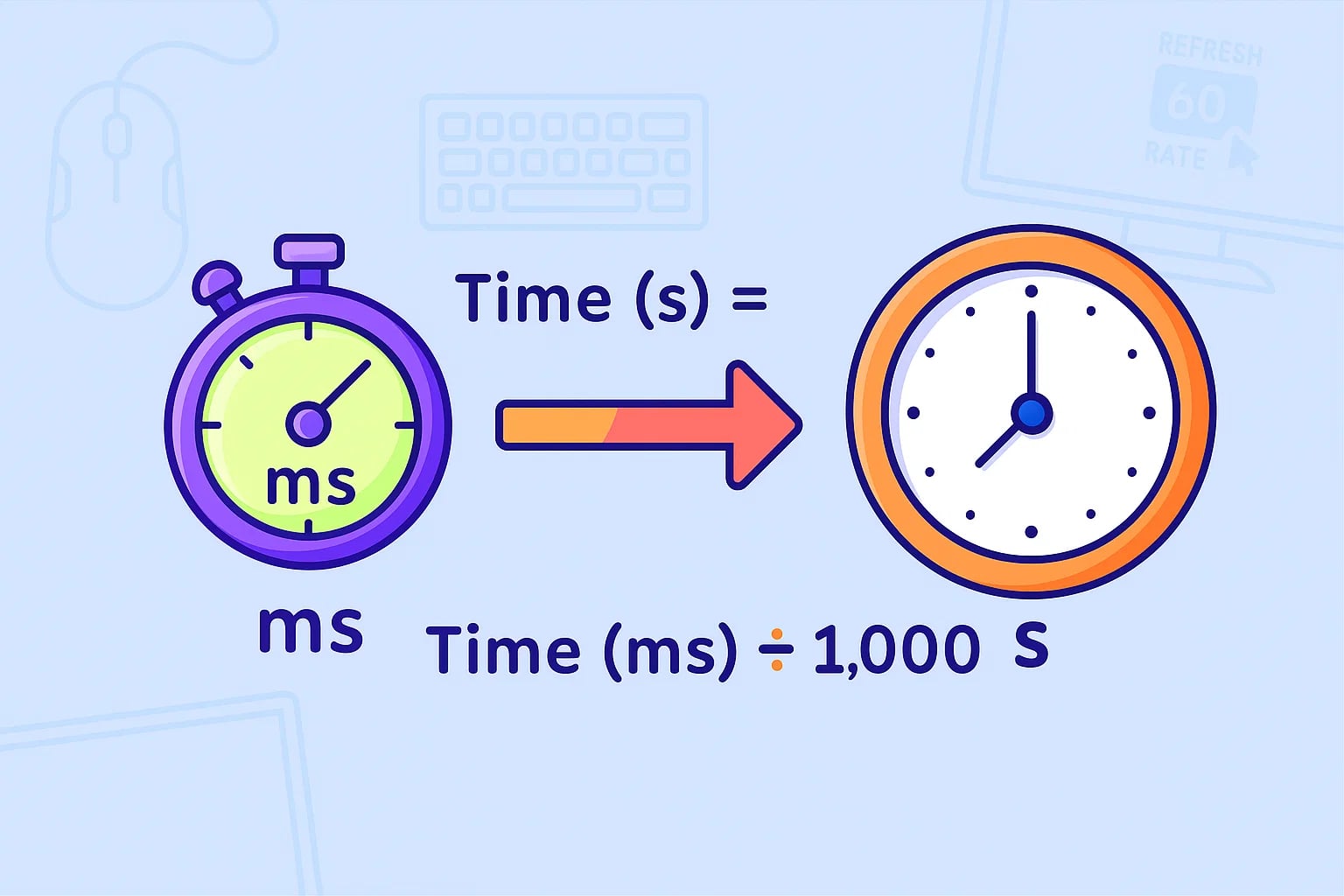millisecond to second - How to convert ms to s
The millisecond to second conversion is straightforward, but it’s essential in fields from competitive gaming to high-speed data transfer. Instead of dealing with large numbers in milliseconds or too broad an estimate in minutes, many people convert to seconds for clearer understanding and analysis.
What is a Millisecond (ms)?
A millisecond is 1⁄1,000 of a second. In gaming, milliseconds can define reaction times, monitor refresh rates, and network latency. A difference as small as 10 ms can mean the difference between landing a perfect hit and missing entirely.
What is a Second (s)?
A second is the base unit of time in most everyday activities. It’s 1,000 milliseconds long and is used universally in schedules, sports, communication, and measurement systems.
How to convert millisecond to second
To convert ms to s, divide the millisecond value by 1,000.
Time (s) = Time (ms) ÷ 1 000
Example:
3,500 ms ÷ 1,000 = 3.5 s
That means every 1 second equals 1,000 milliseconds.

Do you know?
-
The average human blink lasts about 300 – 400 ms, or roughly one-third of a second.
-
Lightning bolts travel at about 220,000 km/h — that’s around 300 ms from cloud to ground.
Gaming on the Edge — Milliseconds That Decide Seconds
In competitive eSports, milliseconds can determine the outcome of seconds-long plays. Imagine a tense final round in a first-person shooter. Your opponent appears on screen for just under a second, and your ability to react relies on input lag, network latency, and reflexes — all measured in milliseconds.
Professional gamers often invest in monitors with refresh rates as high as 240 Hz, meaning the screen updates every 4.16 ms. Controllers, keyboards, and mice are selected for response times under 1 ms. These tiny differences stack up, turning a fast reaction into a game-winning moment in the seconds that follow.

A famous example is the 2018 Overwatch League Finals, where a single well-timed elimination in less than a second swung the momentum of the match. Behind that play were countless millisecond-level optimizations — proof that precision on the smallest scale can dominate the biggest moments.
The Time That Wins Games
Milliseconds give precision, seconds tell the story. Together, they define outcomes — in gaming, technology, and beyond. Converting between these units ensures you can see both the split-second actions and the full sequence they create.
You can instantly switch from ms to s and beyond with our Time Converter or explore even more possibilities in the Conversion Tools — precise results, anytime you need them.

